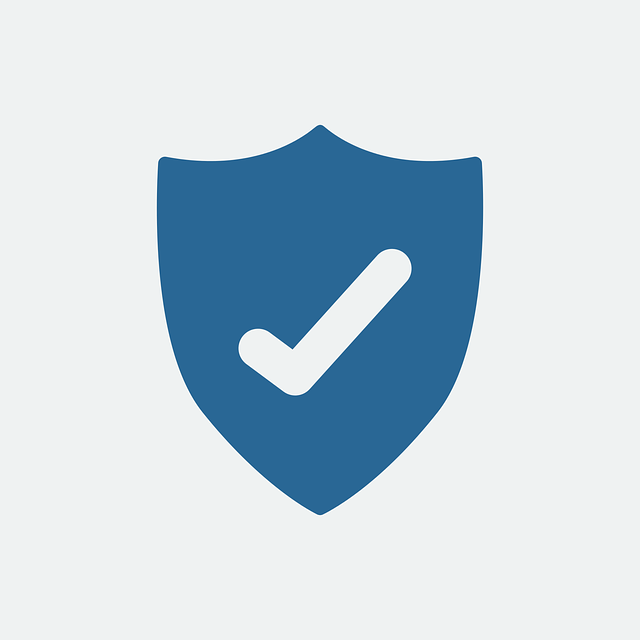Do you need tips for selecting an antivirus program for your internet-enabled device? Or are you in need of a suitable antivirus program? Here are some tips for you.
According to cybersecurity experts, using security protection tools on internet-enabled devices to mitigate cyber threats is essential.
A typical computer user often finds it difficult to select a suitable antivirus program to secure their computer. Most of the time, computer users go for the “popular” antivirus program, which may not necessarily suit them.
Certain factors need to be considered before selecting a suitable antivirus tool. This is because “suitability” is relative, as what is suitable for you may not be suitable for another.
Hence, to guide an individual’s selection choice, herein are seven tips for you. Read on!
READ ALSO: The Best Antivirus Software
Table of Contents
7 Tips For Selecting An Antivirus Program
Outlined below are some tips for selecting an antivirus program for your PC/Mac and smartphone:
System build – OS
This is the most important factor to consider when selecting an antivirus program. What is suitable for Windows PC and Mac OS may be too complex for Android smartphones.
Hence, while BitDefender is widely considered the best antivirus program for PCs, it’s not necessarily the best for Android.
For Android users, Norton and BullGuard seem to be the ideal choices, although there are other factors to consider.
EXPLORE: Full ESET Smart Security Premium Review
Consider a cross-platform antivirus program
 If you have a network of devices to secure, you should consider an antivirus with cross-platform support.
If you have a network of devices to secure, you should consider an antivirus with cross-platform support.
Furthermore, for easier coordination, ensure you subscribe to a “multi-device” plan – to cover all devices on your network.
Luckily, most standard antivirus programs offer multiple-device support at discounted rates.
- READ ALSO: Best VPN For 2023
- READ ALSO: Best Antivirus For 2023
What is your budget? Don’t pay for what you can get for free
At times, the free edition is all you need. Therefore, going for the paid version only if/when needed is recommended.
Today, virtually all antivirus programs offer free services, albeit with limited features. And some of these programs offer more free features than others.
So, if you’re on a budget, go for one that offers standard features for free or one with affordable “Pro” features.
READ ALSO: 12 Best Free Antivirus Programs for Windows PC [Not Free Trial]
Anti-malware or antivirus programs?
There’s a difference between both programs, though they have many similarities.
Typically, an anti-malware program scans and removes malware from an infected computer. It cannot generally prevent or detect infection, which is the forte of antivirus programs.
Essentially, do NOT select an anti-malware instead of an antivirus program unless your computer is already infected. Nonetheless, an antivirus tool with a high malware-detection rate (like BitDefender) is highly recommended.
Test-run an antivirus program before paying for it
Virtually all security solutions offer free trials, enabling you to test their suitability before committing your funds. This is the standard industry practice.
Hence, ensure you test-run an antivirus (for free) before purchasing the licensed edition.
EXPLORE: Full Review of Heimdal Security – Versatile Security Suite
Don’t settle for less
Windows Defender comes pre-installed on Windows 8.1/10. However, it’s generally insufficient to protect your computer, especially from malware attacks.
Typically, what’s on offer on a standard antivirus program, like BitDefender or Norton, is not obtainable on Windows Defender. So, try to install a first-grade antivirus tool to support Windows Defender.
READ ALSO: 8 Confidential Tips for Selecting a Password Manager
Don’t fall for sham marketing campaigns.
There are numerous counterfeit antivirus programs out there, most of which are, in fact, “adware injectors.” So, to be safe, go for one of the popular antivirus programs.
Furthermore, be wary of cheap marketing campaigns like “antivirus for iOS.” According to Apple, iPhones/iPads do not need antivirus protection.
You can install a free antivirus program on your iPhone/iPad. Such a program’s anti-theft feature may come in handy.
Tips For Selecting An Antivirus Program: Frequently Asked Questions
How do I choose an antivirus software?
Consider these key factors to find the best fit for your needs:
- Protection Capabilities:
- Malware Detection: Ensures the antivirus effectively identifies and blocks viruses, spyware, ransomware, and other malicious software.
- Real-Time Scanning: Provides continuous protection by scanning files, emails, and websites in real time to prevent infections.
- Regular Updates: Choose a program that receives frequent updates to stay on top of the latest threats.
- System Performance: Some antivirus programs can slow down your computer. Look for a balance between robust protection and minimal performance impact.
- Features: Consider additional features that might be important to you, such as:
- Firewall protection to monitor incoming and outgoing network traffic.
- Phishing protection to safeguard you from deceptive emails.
- Parental controls to manage internet usage for children.
- Ease of Use: The program should be user-friendly and easy to navigate, even for non-technical users.
- Compatibility: Ensure the antivirus is compatible with your operating system (Windows, Mac, Android, etc.) and device specifications.
- Cost: Antivirus programs range from free versions with limited features to premium versions with comprehensive protection. Consider your budget and needs.
What are the top 2 factors you should consider before purchasing antivirus software?
- Protection Capabilities: Prioritize an antivirus with robust malware detection, real-time scanning, and regular updates to ensure maximum security.
- System Performance: Choose a program that offers strong protection without significantly impacting your device’s speed and performance.
Why choose antivirus software?
Antivirus software acts as a shield against a vast array of online threats. It can:
- Prevent malware infections that can steal your data, damage your device, or disrupt your online activity.
- Block phishing attempts designed to trick you into revealing sensitive information.
- Safeguard your privacy by protecting your data from unauthorized access.
- Provide peace of mind by knowing your device is actively protected against evolving cyber threats.
Are free antivirus programs any good?
Free antivirus programs can offer basic protection but might lack features like real-time scanning, advanced threat detection, or technical support that premium versions provide.
What about bundled security software with my device?
Some operating systems come with basic built-in antivirus protection. While these can be a good starting point, they might not offer the same level of comprehensive security as a dedicated antivirus program.
How do I install and configure my antivirus program?
Most antivirus programs are easy to install and offer user-friendly interfaces. They often guide you through the setup process and provide default settings for optimal protection.
How do I keep my antivirus program up to date?
Most antivirus programs have automatic update features. Ensure these features are enabled to receive the latest security patches and threat definitions.
Is there anything else I can do to stay safe online besides using antivirus software?
Absolutely! Here are some additional security practices:
- Practice Safe Browsing Habits: Be cautious when clicking on links or downloading files from untrusted websites.
- Beware of Phishing Emails: Don’t enter personal information in emails; be wary of emails that create a sense of urgency or fear.
- Use Strong Passwords and Two-Factor Authentication: Utilize complex passwords for all your online accounts and enable two-factor authentication wherever possible for an extra layer of security.
- Keep Your Software Updated: Regularly update your operating system, web browser, and other software to patch vulnerabilities that hackers might exploit.
Combining a robust antivirus program with safe online habits can significantly strengthen your overall cybersecurity posture and protect yourself from a wide range of online threats.
You can check out our Deals and Special Offers page for Antivirus offers for as low as 50% OFF.
I hope you find this helpful.
RELATED POSTS
- 5 Signs That Your Webcam Has Been Hacked
- How To Get Surfshark VPN Free Trial
- What are PUPs, and how do you remove PUPs from your computer
- Is Windows Defender Enough for 2024?
- How To Download And Install CyberGhost VPN On Your PC [Windows & Mac]
- The Ultimate Antivirus Software Guide: What Is An Antivirus?
- 5 Checklist For Choosing A VPN Service Provider
About the Author:
Marie Beaujolie is a computer network engineer and content writer from Paris. She is passionate about technology and exploring new ways to make people’s lives easier. Marie has been working in the IT industry for many years and has a wealth of knowledge about computer security and best practices. She is a regular contributor for SecureBlitz.com, where she writes about the latest trends and news in the cyber security industry. Marie is committed to helping people stay safe online and encouraging them to take the necessary steps to protect their data.
Christian Schmitz is a professional journalist and editor at SecureBlitz.com. He has a keen eye for the ever-changing cybersecurity industry and is passionate about spreading awareness of the industry's latest trends. Before joining SecureBlitz, Christian worked as a journalist for a local community newspaper in Nuremberg. Through his years of experience, Christian has developed a sharp eye for detail, an acute understanding of the cybersecurity industry, and an unwavering commitment to delivering accurate and up-to-date information.






